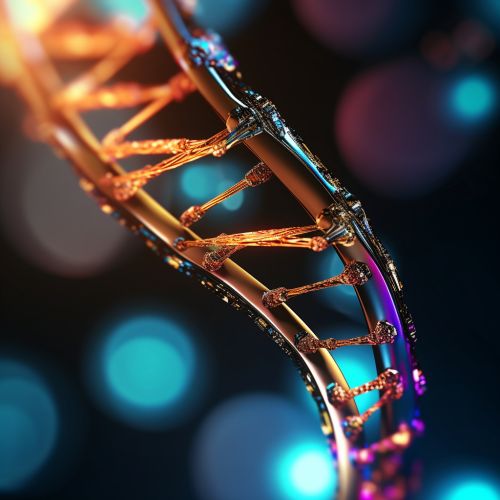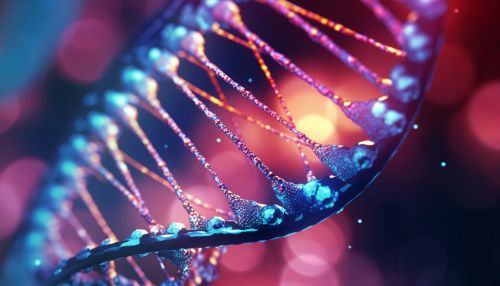Huntington's disease
Introduction
Huntington's disease (HD) is a genetic disorder that results in the death of brain cells. The earliest symptoms are often subtle problems with mood or mental abilities. A general lack of coordination and an unsteady gait often follow. As the disease advances, uncoordinated, jerky body movements become more apparent. Physical abilities gradually worsen until coordinated movement becomes difficult and the person is unable to talk. Mental abilities generally decline into dementia.
Genetics
Huntington's disease is inherited in an autosomal dominant manner, meaning that an affected individual typically inherits one copy of the gene with the expanded trinucleotide repeat (the mutant allele) from an affected parent. In this type of inheritance, having just one mutated allele is enough to cause the disease. This is in contrast to autosomal recessive diseases, where two mutated alleles are needed to cause the disease. The chance of a child inheriting the mutated allele from an affected parent is 50% for each pregnancy, regardless of the child's sex.


Symptoms
The symptoms of Huntington's disease can be divided into three main categories: movement disorders, cognitive disorders, and psychiatric disorders. Movement disorders are characterized by both involuntary movement problems, such as chorea, and impairments in voluntary movements, such as dystonia. Cognitive disorders often involve problems with thought processes, including difficulties in organizing, prioritizing, or focusing on tasks. Psychiatric disorders are a significant concern in Huntington's disease and can be the most distressing aspect of the disease for many individuals. These can include a variety of symptoms, such as depression, apathy, irritability, and obsessive-compulsive behaviors.
Diagnosis
The diagnosis of Huntington's disease is based on the presence of characteristic clinical symptoms and signs, in an individual with a family history of the disease. Genetic testing can confirm the diagnosis in individuals with or without symptoms. The genetic test for Huntington's disease measures the number of CAG repeats in the huntingtin gene (HTT). A repeat number of 36 or more is considered a positive result.
Treatment
There is currently no cure for Huntington's disease, and the disease is fatal. Treatment for HD is focused on managing symptoms and maximizing the quality of life. Medications are available to help manage some of the symptoms of chorea, depression, and other psychiatric disorders. Physical therapy can help manage gait problems and improve mobility. Speech therapy can help manage difficulties with speech and swallowing.
Prognosis
The progression of Huntington's disease varies significantly between individuals. The disease progression can be roughly divided into three stages. The early stage is characterized by subtle changes in coordination, often associated with depression and irritability. The middle stage is marked by movement problems and increased difficulty with mental tasks. In the late stage, the person is dependent on others for their care as they are unable to walk and speak.
Epidemiology
Huntington's disease affects both men and women equally. The disease is most common in people of Western European descent, affecting about 5 to 7 per 100,000 people of European ancestry. The disease is much less common in other populations, including people of Japanese, Chinese, and African descent.
Research Directions
Research into Huntington's disease is focused on understanding the function of the normal huntingtin protein, how the mutant protein causes disease, and developing treatments. Several promising research directions are currently being pursued, including gene silencing, stem cell therapy, and drug therapies.
